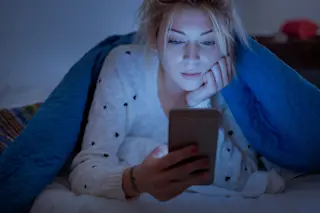Since the dawn of time, humans have depended on the light of day and the darkness of night to regulate sleep cycles and keep our circadian rhythms in check. But now with the advent of electrical lighting as well as screen time, we have to tend to unnatural lighting and the impact it has on our sleep cycles.
Humans have robust rhythms that regulate nearly every aspect of our lives, from our cognition to memory to things like liver function and how the pancreas secretes insulin in response to a meal. For our sleep cycle, we have our circadian rhythm.
When our inner clock or circadian rhythm is off, the body doesn’t function as it should.
“The system is tied together by a central clock in the brain that acts like a master conductor,” says Christopher S Colwell, neuroscientist and professor in the Department of Psychiatry and Biobehavioral Sciences at ...















